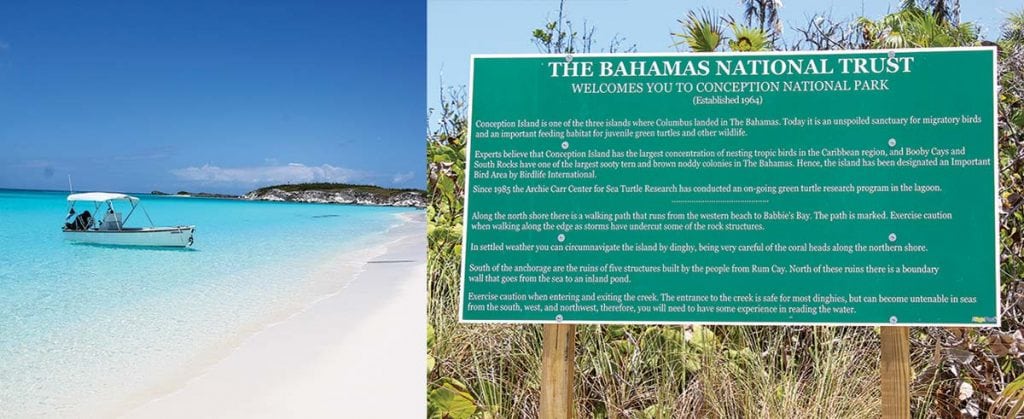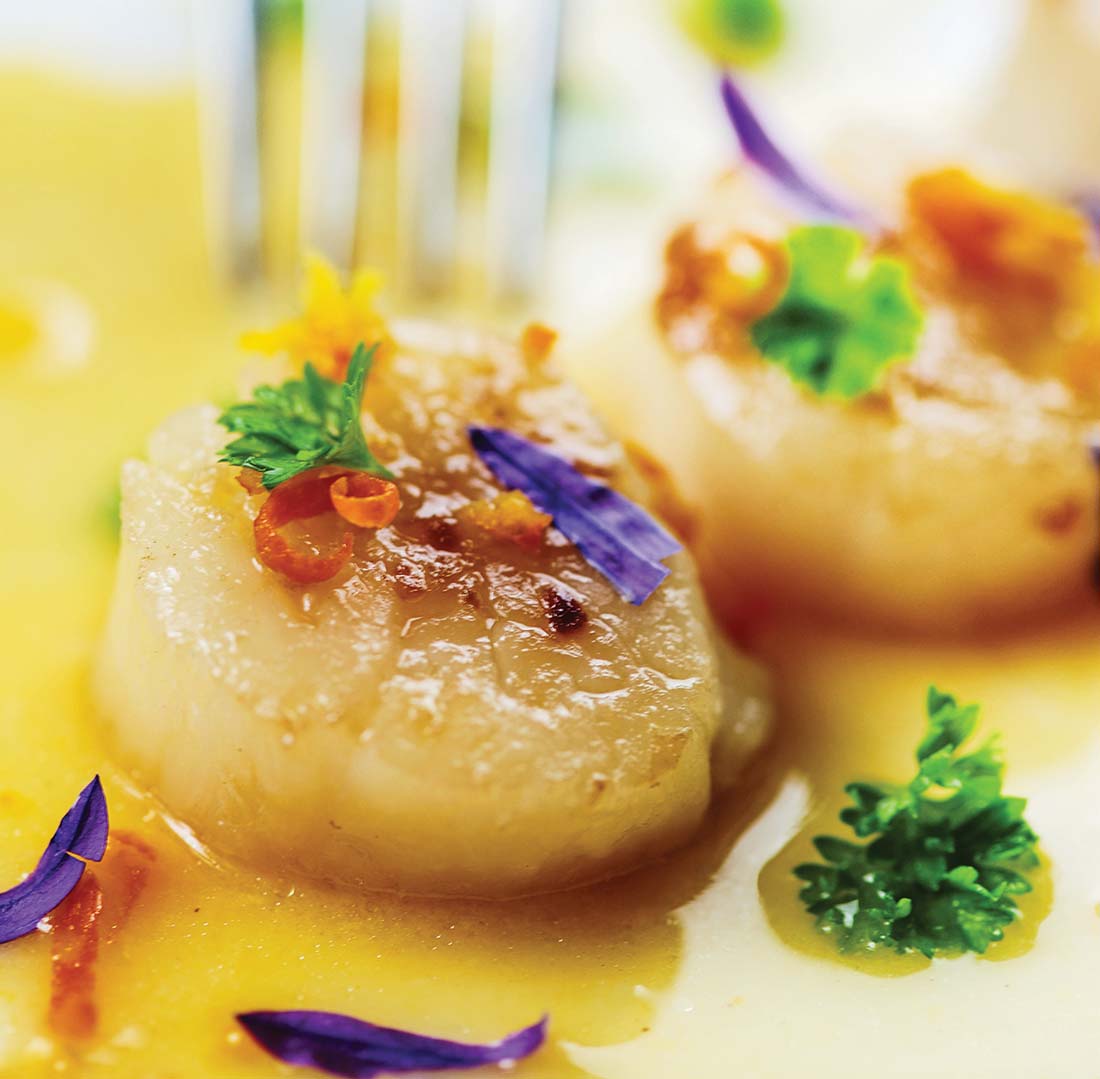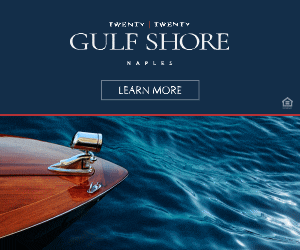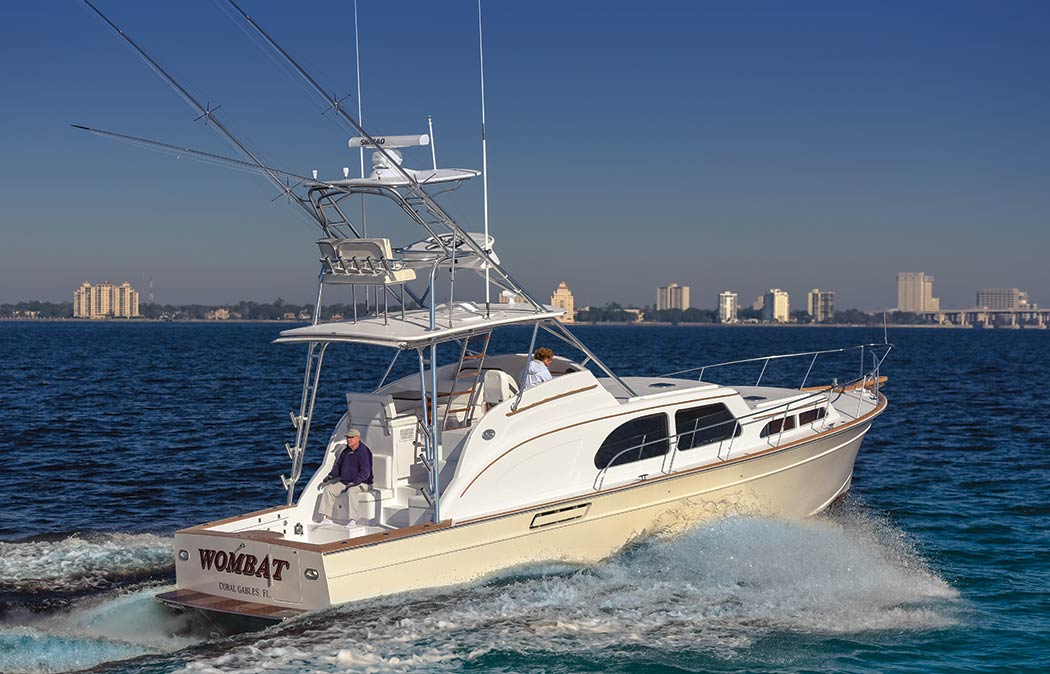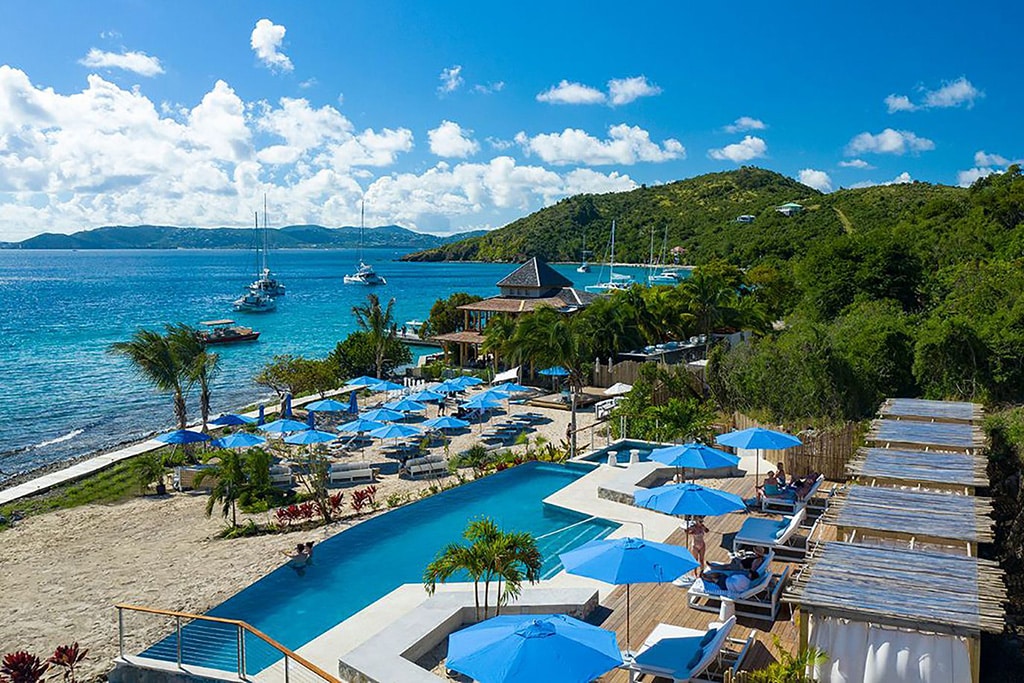The Bahamas National Trust installed new signs around Conception Island to help cruisers enjoy the island, stay safe and respect the wildlife. The three moorings in West Bay have been reset and inspected. Boats over 100 feet are strongly encouraged to use these moorings; the southernmost mooring is a 3,000-pound Danforth for vessels up to 200 feet.
Sea Turtle Network
Sea turtle nesting season runs roughly from April to September. Reports of nesting activity are especially important in The Bahamas because there are so many nesting beaches scattered throughout the islands and only a few people regularly monitor them. The Department of Marine Resources has partnered with several non-governmental organizations (NGO) to form the Sea Turtle Network, the purpose of which is to reduce the illegal harvest of sea turtles that continues despite the complete ban in 2009. The Network also provides an important means of disseminating information and receiving important sea turtle observations. All cruisers are asked to report sightings of mating or nesting turtles, injured turtles, turtles found with tags, and any violations of the ban on the harvest of turtles. Reports can be made on Facebook: Bahamas Sea Turtle Network.
The Island School
Parents and grandparents interested in a rewarding experience for high school students should visit the Island School in South Eleuthera. The school and its partner, the Cape Eleuthera Institute, are located within walking distance of the Cape Eleuthera Marina.
Founded by Chris Maxey, the Island School offers full semester programs for about 50 students and offers special scholarships for Bahamians. The organization also runs a middle school in Deep Creek for local children. Spend time investigating the school’s extraordinary opportunities at islandschool.org.
The Cape Eleuthera Institute is a research facility where senior scientists conduct important oceanographic research and involve the Island School students in their projects, including ongoing studies of sharks, rays, sea turtles, lionfish, conch, and bonefish.
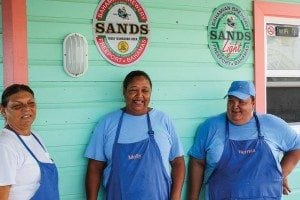
Talkin’ Bahamian
The Bahamas’ linguistic treasures are part of a rich culture. Here are a few of our island-lingo favorites we’ve learned over the years:
• Day clean: first light, dawn
• Me-one/you-one: by myself. “Who sailed here with you?” “Nobody. Just me-one.”
• I ain’ know, you know: answer to any question with an unknown answer.
• God spare life: answer to remarks like “See you tomorrow.”
• Done reach: has arrived, “The mailboat done reach.”
• One time ago: sometime in the past
• Tief: steal, “Someone done tief ma boat last night.”
• Owned: used with the name of the owner, “That Pam-owned car.”
• Next: another, “You want a next beer?”
• Tingum: all-purpose designation of an object the listener is supposed to know. “Fetch me another tingum.”
More Talkin’ Bahamian by Patricia Glinton-Meicholas has an excellent collection of words and phrases with good explanations of meanings and usage. Glinton-Meicholas’ How to Be a True-True Bahamian explains much of the context of these gems.
Stolen dinghies
Dinghy theft continues to rise throughout The Bahamas. There is no absolute way to prevent your dinghy from being stolen, but basic seaman’s preparedness may surely help especially as the season of thunderstorms and hurricanes is upon us. At the end of the day’s activities it is good practice to secure the boat for the night and ensure that all equipment is stowed, anchor is holding, dinghy is on deck, and so on. Be ready to react quickly to surprises that may come in the night. If you tow a larger center console boat, invest in an alarm/tracking system such as the SeaTrax II from AtlasTrax (atlastrax.com). To report theft and other crimes to the Bahamian Police, dial 911 or 919.
Dean’s Blue Hole
Dean’s Blue Hole just north of Clarence Town, Long Island, is one of the most exciting natural features in The Bahamas and is now a major location for freediving training and competition. At the annual Vertical Blue competition on Saturday, April 30th, William Trubridge broke the world record in the free immersion category of freediving. More incredible is that on Monday he went down again and added another 2 meters to his record; he reached 124 meters on a single breath lasting 4 minutes 34 seconds.
NOTE: Freediving to extraordinary depths is dangerous and should not be practiced without considerable instruction and extensive safety precautions. verticalblue.net
Navigation and safety
As everyone knows we are now well into hurricane season and the season of severe thunderstorms and water spouts. Be extra careful when selecting your anchorages as sudden squalls with shifting winds can ruin more than a good night’s sleep. Choose marinas that have good protection, always keep a short list of hurricane holes on hand, and make sure that you pay close attention to forecasts to access one of these holes in plenty of time if need be. Be sure to call these protected marinas well in advance as many marinas do not allow boats at their docks if there is a hurricane threat.
Remember how much trouble it was for meteorologists to predict Hurricane Joaquin last year? That hurricane was expected to be a category 1-2 but quickly became a category 3-5 and caused as much or more devastation than many memorable hurricanes. As the English proverb goes, “Prepare for the worst and hope for the best.”
By Stephen Connett, Southern Boating Magazine
July 2016

